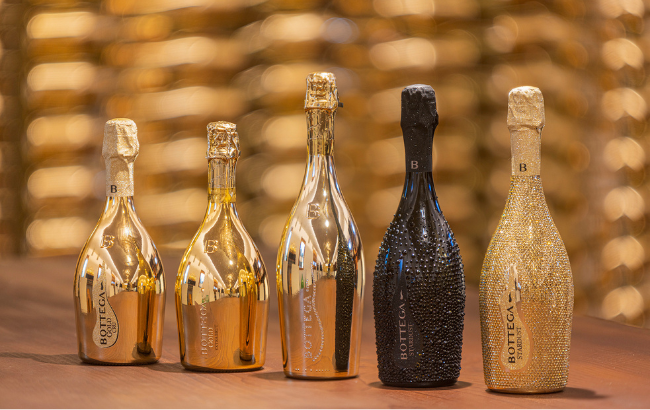Tariffs hit: but how can the wine industry adapt?
By Sophie ArundelWhile tariff talk has cast a shadow over the wine trade, some see opportunity in the disruption – and a chance to reset how wine is sold, shared and experienced.

Tariffs have, of course, dominated headlines across the international wine trade in recent weeks. Following former US President Donald Trump’s initial decision to impose sweeping duties on imported goods, including wine, producers across Europe and beyond braced for disruption to sales, supply chains, and price points.
However, in yet another dramatic policy U-turn, Trump has now scaled back many of the proposed duties. DB reported yesterday that, while the tariff rate on Chinese goods is set to jump to 125%, levies on wine and spirits from most other parts of the world will be significantly lowered. The move has offered a measure of relief to the international drinks trade, although uncertainty, naturally, remains high.
But amid the noise and fluctuating policy landscape, there is still room for optimism. Industry voices are beginning to shift the conversation from damage control to forward thinking: what can the wine world do to adapt, evolve, and preserve its relevance in this ever-changing trade environment?
Storytelling: more important now than ever before
For some, the answer lies not in lobbying or political wrangling, but in storytelling.
Andrea Moradei, of Florence-based wine consultancy Vinarium, believes the current climate demands a more personal, experience-driven approach:
“Tariffs are never good news, especially for wines in the low to mid-price range, where price sensitivity is high. Iconic yet accessible wines like Chianti, Soave, and Frascati are feeling the squeeze, while high-end buyers remain steady and Prosecco continues to defy trends with growing demand,” he tells db.
“But the real issue isn’t just tariffs, it’s the broader uncertainty driven by political instability in the US, which affects both wine sales and tourism.”
In response, Moradei says many smaller Italian producers are rethinking their reliance on traditional distribution networks and turning toward direct-to-consumer (DTC) models – particularly those that combine wine sales with immersive, hospitality-led experiences.
“Personalised selection, door-to-door delivery, and estate experiences help preserve value and build lasting customer relationships,” he explains. “In today’s climate, it’s not just the label that sells, it’s the story, the people, and the sense of place behind every bottle.”
Reaching the next generation
The shift toward greater emphasis on storytelling aligns with wider industry conversations around branding, engagement and generational change. Miles Beale, chief executive of the UK’s Wine and Spirit Trade Association (WSTA), recently underlined the need to connect with younger consumers, not only to future-proof sales but to ensure wine continues to compete with spirits, beer and RTDs in an increasingly crowded drinks space.
Partner Content
“People are drinking less, but they’re drinking better. In the UK, alcohol consumption has fallen 20% over the last 20 years. That trend is unlikely to change.”
His advice? Simplify the message. “There are so many products where people talk in great detail about the winemaking process, the vineyard, the terroir. If you want younger consumers to drink as much wine and spirits in the future as past generations, you need to make it much easier for them.”
With trade dynamics constantly shifting, emerging technology, and evolving consumer habits, the drinks industry faces challenges – but also opportunities. As Beale put it: “If we can apply some of our clever marketing minds to really simple messaging, the impact could be very big.”
Cautious optimism for California
While the rollback on non-China tariffs has tempered some of the more immediate fears among international producers, the recent volatility has left its mark. But, in some corners of the US, there is even cautious optimism.
“There’s a potential upside for us here,” Nicholas Miller, vice president of sales and marketing for Miller Family Wine Company, told Business Insider. “The US wine industry has been in a cycle of being severely oversupplied for the last couple of years. But, that’s also been when there’s a big global market coming in.”
Trump’s previous plan to slap blanket 10% fees on imported goods, rising to 20% for major exporters like Italy and France, could, Miller suggested, have “levelled the playing field” for domestic producers. While much of that threat has now receded, the recalibration of global trade has sparked new discussions about domestic opportunity.
“If tariffs do indeed slow down imports and make them less competitive, I can see that there would be an upside for domestic wines in that case,” Miller told Business Insider.
While ultra-premium producers may remain export-dependent and bottom-tier players risk being squeezed out entirely, the so-called “sweet spot” appears to be for mid-range producers, especially those rooted in tourism hotspots like California’s Central Coast.
“If people are pulling their purse strings because of their worries about the economy,” said Scott Bull, owner of Sustainable Wine Tours in Santa Barbara, “then they would typically, and we saw this certainly during COVID but for other different reasons – choose to come to Santa Barbara County versus taking European vacations.”
Bull added that during the pandemic, the region saw an uptick in visitors who “realise that we have some extraordinary wines here that really offer the same type of quality or even higher quality” than their European counterparts. “And so I think this could be that new introduction point.”
Related news
Scaling up organics: the realities behind going big without chemicals
Libiamo! Christie's curates wine auction for Royal Opera House




